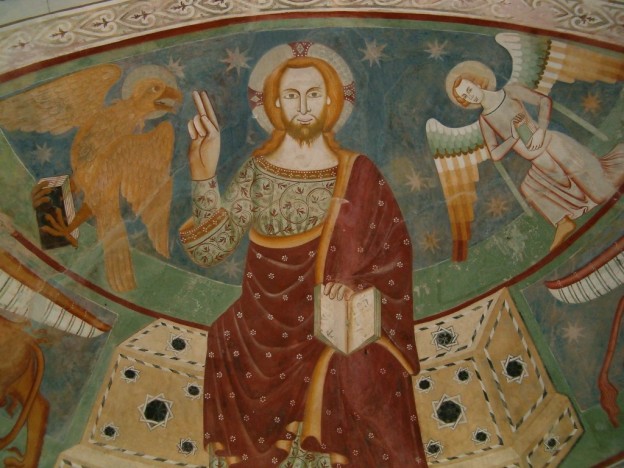The Jerusalem Above

Friday at Matins:
From the Treatise on the City of God by St Augustine, Bishop & Doctor
The divine oracles given to Abraham, Isaac, and Jacob, and all the other prophetic signs or words found in previous sacred writings, refer partly to the nation physically derived from Abraham, but partly to those descendants of his in whom all nations are blessed as co-heirs of Christ through the new covenant. The same is true of the rest of the prophecies from this period of the Kings. Thus the prophecies refer in part to the maidservant whose children are born into slavery, that is, the earthly Jerusalem, who is in slavery, as are also her sons; but in part they refer to the free City of God, the true Jerusalem, eternal in heaven, whose sons are the men who live according to God’s will in their pilgrimage on earth. There are, however, some prophecies which are understood as referring to both; literally to the bondmaid, symbolically to the free woman.
Thus the utterances of the prophets are found to have a threefold meaning, in that some have in view the earthly Jerusalem, others the heavenly, and others refer to both. It is clear to me that I ought to prove my point by examples. Nathan the Prophet was sent to convict King David of a grave sin and to predict the coming misfortunes, misfortunes which in fact followed. Can anyone doubt that these statements and others of the same tenor had reference to the earthly city? On the other hand we have such a passage as: “Behold, the days are coming, says the Lord, when I shall ratify a new covenant with the house of Israel, and with the house of Judah … I shall establish it by putting my laws in their minds; and I shall write them on their hearts, and I shall look on them. And I shall become their God; and they will become my people.” This is, without doubt, a prophecy of the Jerusalem above, whose reward is God himself; and to possess him, and to be his possession, is the Highest Good, and the Entire Good, in that City.
But the fact that Jerusalem is called the city of God has a double reference, combined as it is with the prophecy of the future house of God in that city. This prophecy seems to have its fulfilment when King Solomon builds that renowned temple. But this was not only an event in the history of the earthly Jerusalem; it was also a symbol of the Jerusalem in heaven. Now in my opinion it is certainly a complete mistake to suppose that no narrative of events in this type of literature has any significance beyond the purely historical record; but it is equally rash to maintain that every single statement in those books is a complex of allegorical meanings. That is why I have spoken of a triple, instead of a double classification; for this is my own considered judgement. In spite of that, I do not censure those who have succeeded in carving out a spiritual meaning from each and every event in the narrative, always provided that they have maintained its original basis of historical truth.
